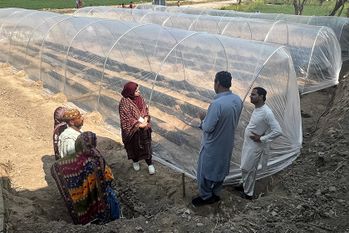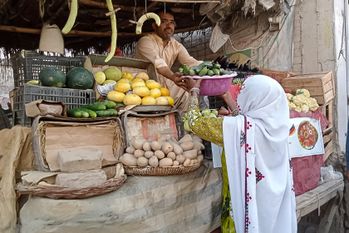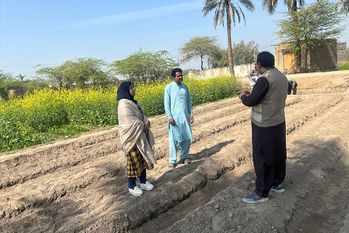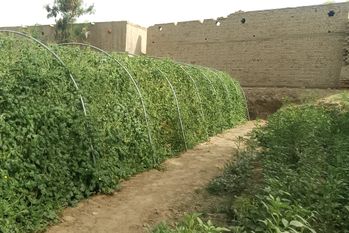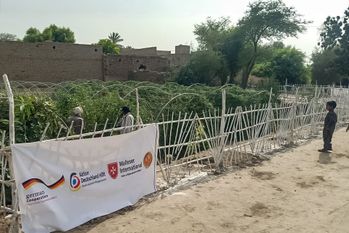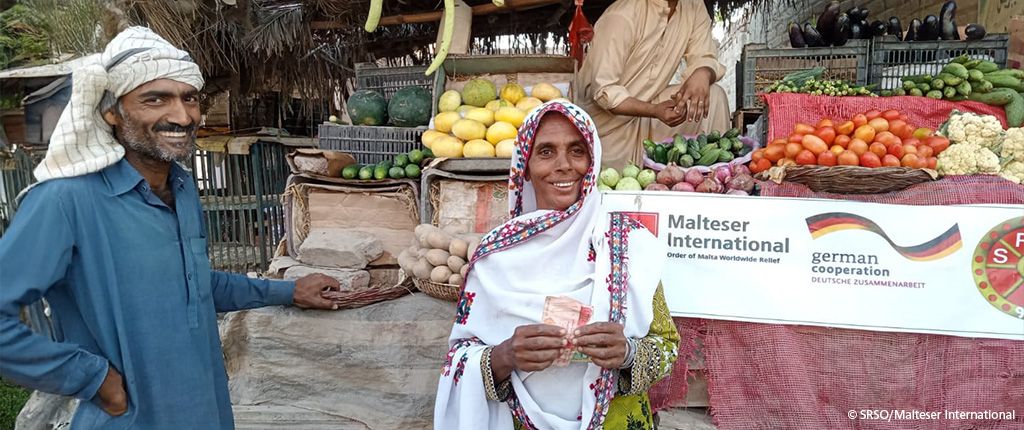
Climate-smart agriculture takes root through vertical farming
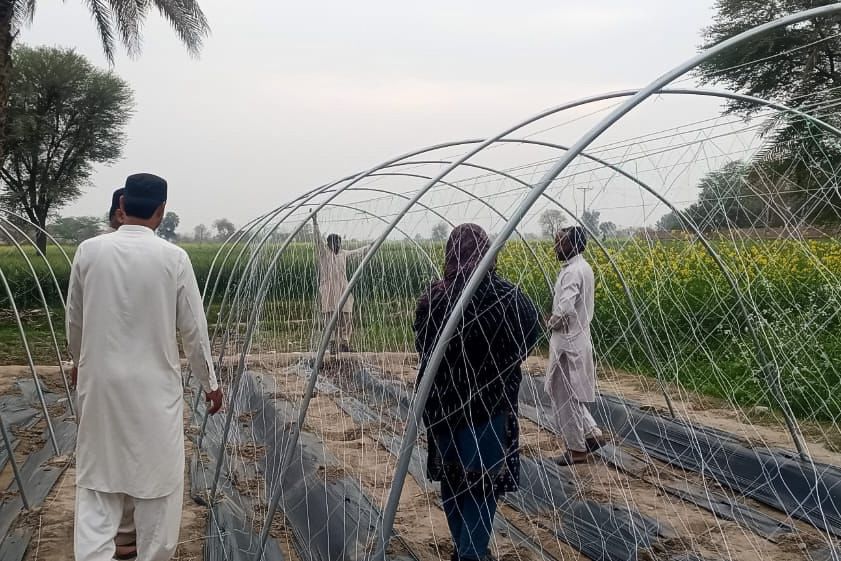
Sindh province in southern Pakistan is highly vulnerable to climate-related disasters such as floods, droughts, and extreme heat. Rural communities, which often depend on agriculture for their livelihoods, are particularly hard hit. This was the case in 2022, when severe flooding caused widespread destruction. Many small farmers lost their fields, crops, and thus their livelihoods. To help people get back on their feet, we have launched a project in the Khairpur district together with our local partner SRSO. Funded by the Federal Ministry for Economic Cooperation and Development (BMZ), we are helping affected families rebuild their livelihoods and better protect themselves from future disasters in the long term.
The project focuses on promoting climate-friendly agriculture. The aim is to help communities develop sustainable sources of income using innovative approaches. These include vertical tunnel systems for vegetable cultivation and the establishment of tree nurseries. These methods have many advantages: they not only increase yields, but also consume less water and extend the growing season. To enable people to implement these new techniques successfully, they have been organized into business development groups (BDGs). There they receive training in climate-resilient agriculture, business management, and practical know-how for setting up their own small businesses.
So far, 20 tree nurseries and 10 tunnel facilities have been set up in five communities affected by flooding: Mehar Veesar, Pir Budro, Sabar Rind, Kharirah, and Hindyari. A total of 90 people are currently actively involved in the project – 60 in the tree nurseries and 30 in the tunnel facilities. The first harvest, including asparagus cucumbers, eggplants, and bitter melons, has already been successfully sold at local markets. For the communities, this is tangible proof that their efforts are paying off and that the path to a secure, self-determined future is possible.
Farming success in Ali Abad
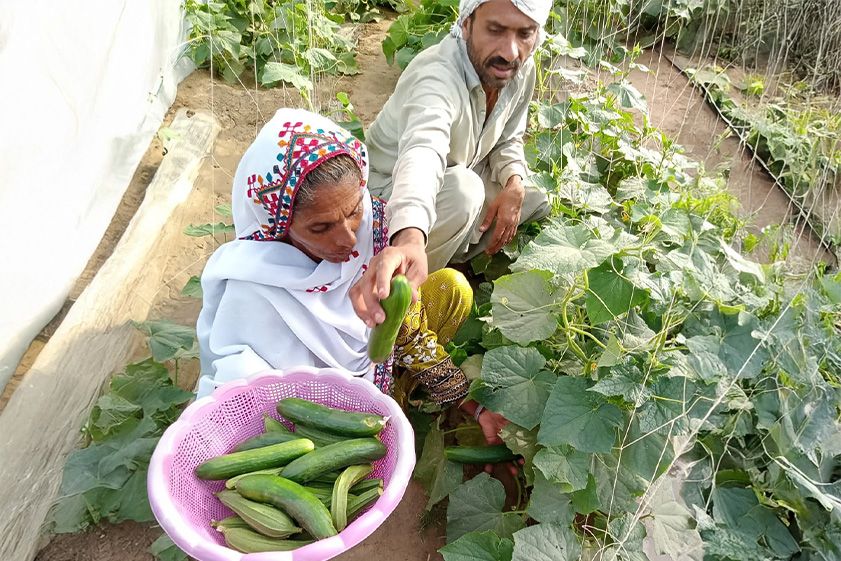
In the village of Ali Abad in Union Council Hindyari, three farmers – Ghulam Zuhran, Shokat Ali, and Karam Hussain – have achieved something special with their courage to change. As part of Malteser International's project, they began growing vegetables in vertical tunnel systems, which save water and allow them to grow crops regardless of the season.
Today, they sell cucumbers, pumpkins, and bitter melons at local markets, earning around 1,000 Pakistani rupees per day. This is not only enough to support their families, but also allows them to invest in expanding their cultivation. “We have not only improved our livelihoods, but also gained new skills and self-confidence,” says Ghulam Zuhran. Word of their success is spreading: interest is growing in the surrounding villages. More and more people want to know how the method works – and whether it is suitable for them too.
Success continues to grow
Following these promising initial successes, the project is now entering its next phase and is set to be expanded. Plans include the construction of additional tunnel facilities, the cultivation of new, high-demand vegetable varieties, and closer links to local markets. Participants will also receive ongoing training in modern, climate-resilient agriculture and entrepreneurial thinking.
This initiative is more than just farming; it's a model for community-led climate resilience. By promoting sustainable agriculture and empowering local farmers, the project is helping build a more secure and hopeful future for rural families in Khairpur.
(June 2025)

